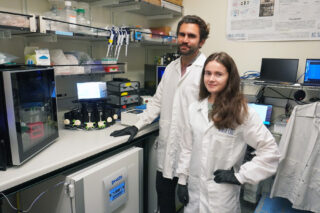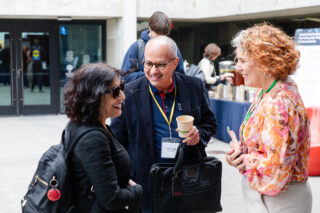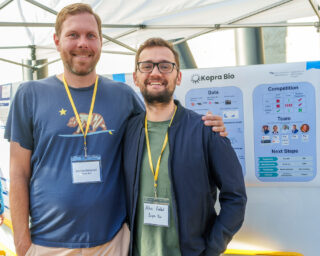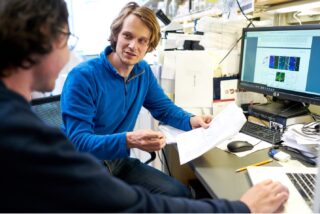Launch of Bakar ClimatEnginuity Hub Unites UC Berkeley Climate Tech Community
By Niki Borghei and Kaspar Mossman. Learn more on the BCH website.
“Berkeley’s different from Las Vegas: what starts here does not end here,” said Dan Kammen, a UC Berkeley professor of energy and founding director of the Renewable and Appropriate Energy Laboratory, in his keynote address at the symposium to launch the Bakar ClimatEnginuity Hub (BCH), Berkeley’s innovation center and incubator for climate technology. BCH will accelerate the commercialization of new technologies, sending them forth to be adopted by humanity across the world as we adapt to and combat climate change.
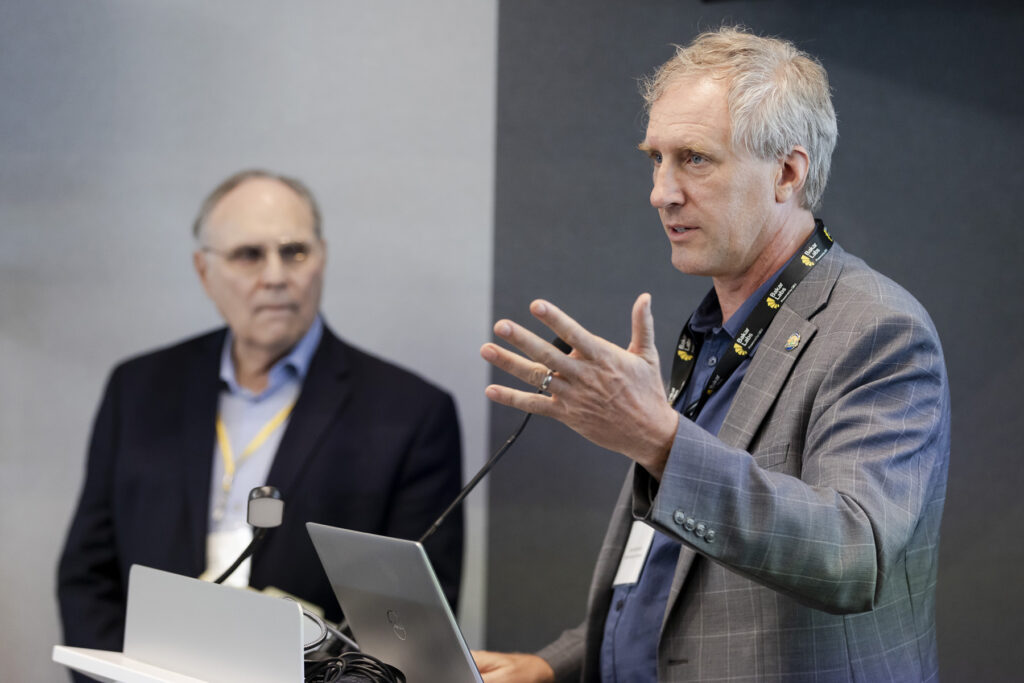
The event, held at Bakar Labs on Friday, September 6, brought together a diverse coalition of stakeholders from the UC Berkeley community, with the goals of engaging and informing Berkeley academics and partners at the Lawrence Berkeley and Livermore national laboratories; exploring strengths and resources in the community; and brainstorming which emerging technologies are most important and feasible for BCH to support.
BCH, the climate-focused equivalent of the Bakar BioEnginuity Hub, is currently at the blueprint stage, having recently won approval from the UC Regents. It will provide state-of-the-art facilities for entrepreneurs aiming to tackle greatest challenges caused by climate change. Replacing University Hall on the west side of campus at Oxford Street and University Avenue, BCH currently is scheduled to open in 2028.
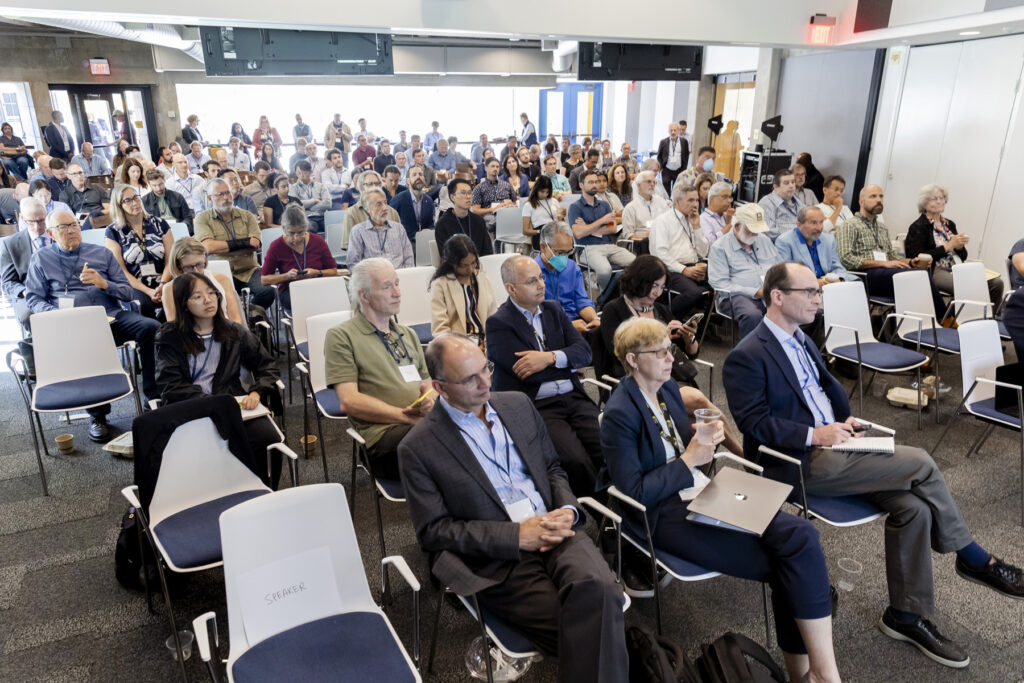
That’s four years away. “But as we all know, the globe is getting warmer every day,” said BCH Director David Schaffer, a UC Berkeley professor of chemical and biomolecular engineering who also leads Bakar Labs, the Bakar BioEnginuity Hub, and QB3. That is why, in partnership with Activate, a national organization that supports scientific entrepreneurs, QB3 and Bakar Labs are rolling out pilot programs to support climate tech entrepreneurs — and lab space, at existing QB3, Bakar Labs, and Activate locations. The plan is to have a roster of companies operating at full speed, who can rapidly populate the BCH facility when it opens.
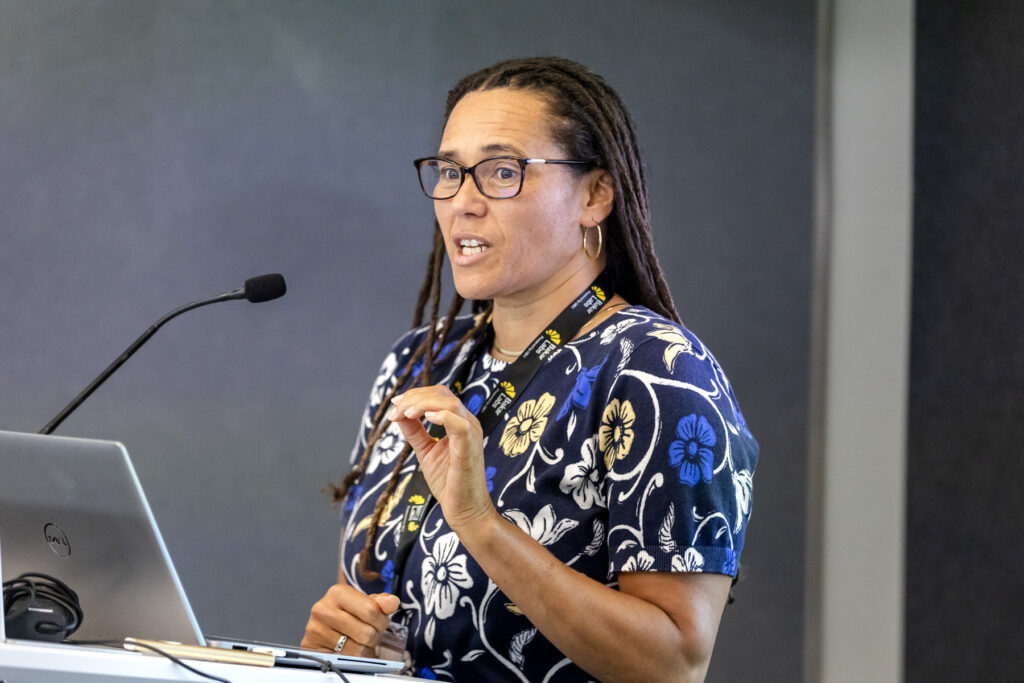
The symposium featured a series of inspiring talks from key figures in the Berkeley climate science community, illustrating the challenges, prospects, and potential of new technologies. Nitash Balsara, the Charles W. Tobias Professor in Electrochemistry, spoke on battery technologies and recycling; Omar Yaghi, the James and Neeltje Tretter Professor of Chemistry, on the potential of “metallo-organic frameworks” to capture CO2 and methane from the atmosphere (interesting factoid: a single gram of MOF contains a football field of internal surface area); and Jessica Granderson, Division Director of LBNL’s Building Technology & Urban Systems Division about a range of new building technologies. “The thermal mass of a building is the biggest battery we have,” she said. One point Granderson made was that the cost of decarbonizing a single-family home is more than most families have in savings.
This aligns with a key topic in Kammen’s keynote, echoed by several attendees in their questions: “climate justice,” an initiative that seeks to ensure that these new technologies are accessible; do not unfairly disadvantage or disrupt demographics and nations that are already disadvantaged; and provide meaningful opportunities for the workforce.

It became clear through the day exactly how broad the climate tech sector is, and that success of new technologies will depend on government policy, public communications, and other factors. Likely, in the words of Ron Cohen, a UC Berkeley distinguished professor of chemistry and professor of earth and planetary science, success will also depend on the ability to “redeploy the fossil fuel industry,” leveraging its skilled workforce, deep resources, and global scale. “Their people want to do it,” he said. Commercial success will ultimately depend on whether there is a genuine market for these technologies: They must deliver significant value to real customers who want them.




